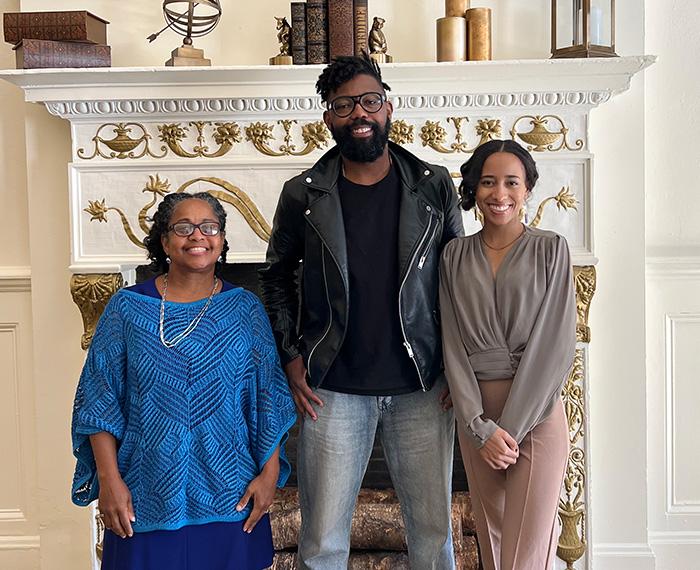Damon Young, this year’s writer in residence at the University of Pittsburgh, believes literacy skills are important to have in today’s society.
“Even if we’re talking about an applicable day to day basis, just being able to be literate, media literate, or social media literate and being able to discern, you know, what’s a good source or what’s bulls — and those are skills that you develop by reading,” Young said.
Young is one of three experts brought to Pitt as part of a new expert-in-residence program facilitated by the Honors College. Young and the other experts will offer workshops for students and the community throughout the year.
Nicola Foote, dean of the Honors College, said the goal of the Expert-in-Residence program is to help students “deepen their skills and confidence across multiple areas.”
“The Writer in Residence program aims to help students explore their creativity,” Foote said “Mr. Young will be offering a series of workshops focused on themes such as ‘Writing the Perfect Personal Essay.’”
Foote hopes that students will be able to express themselves after attending workshops with this program.
“The goal is that students will come away feeling empowered to write about their lives in meaningful ways, enhancing their capacity to express themselves as they apply for graduate programs and scholarships,” Foote said. “The program also seeks to help students use writing as a tool to improve their wellness and deal with complex emotions and experiences.”
Jessica Colicchie, an undeclared sophomore, feels that these workshops offered by Young and the honors college will aid in her professional development.
“Having effective communication and writing skills is a huge part of applying to jobs in any field,” Colicchie said. “So having hands-on experience with a professional could help students further succeed with landing a job after college.”
Young feels that the most rewarding part of writing is being able to understand the world around him.
“The most rewarding part of writing is getting to a place where you can make sense of things,” Young said. “Writing gives you that framework, and it gives you that intellectual ecosystem that’s necessary to try to understand how the world works. It helps me develop curiosity and it’s helped me develop more empathy.”
Young encourages people to write, even if they do not fit the stereotypical image of a writer and feels writing is often romanticized.
“Sometimes we can get caught up in the performance of writing instead of just writing,” Young said. “There’s no right way to write, just write when you can write and how you can do whatever you feel is good for you in order for you to get these words out.”
Foote said Young was chosen for this program after speaking at an event on campus last year and because students asked if he could come back after he gave a “dazzling” talk.
“Damon Young was the Frederick Honors College speaker at our Black History Month last spring,” Foote said. “Young is a nationally renowned and prize-winning humor writer, who is probably the most important contemporary Pittsburgh author. Many of the students in the audience followed up with FHC leadership to ask if Damon could return.”
Collichie feels that learning from a professional provides students with a new perspective.
“It’s one thing to learn about a concept in a class,” Colicchie said “But actually seeing those concepts being communicated by a professional would provide students with an understanding of how communication works in the ‘job world’ versus the ‘school world.”
When asked about what tips he would give to students, Young said the best writing advice he has ever received is to read because that helps people develop their own voice.
“If you don’t engage with other people’s work on a critical level, or even something like a fun movie, then you’re going to be missing that component of the development of your voice,” Young said.
Young hopes that students let go of their fear of writing vulnerably and wants students to get rid of any shame or embarrassment while writing.
“I want us to start to extract that and start to subvert that,” Young said. “And that just takes just a radical reimagination of self, or what we’re capable of. I really hope that by the end of the year, that the students I interact with are able to do that.”


